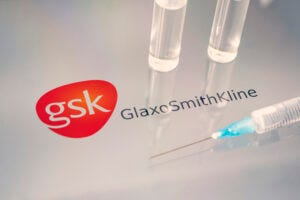
With increasing demand for its shingles and RSV vaccines, GSK has invested $268 million to build a manufacturing center at its Wavre, Belgium site.
Shingrix, GlaxoSmithKline’s shingles vaccine, pulled in sales of £2.96 billion ($3 billion) in 2022, up 75% on the year prior. Meanwhile, the US Food and Drug Administration (FDA) approved the first respiratory syncytial virus (RSV) vaccine Arexvy earlier this year.
Such events have led the firm to invest €250 million ($268 million) to bolster its manufacturing operations at a site in Wavre, claimed by the company to be the largest vaccine production site in the world.

DepositPhotos/[email protected]
“This major investment is once again recognition of the expertise and know-how of our employees in Belgium. Our business continues to evolve, and we adapt to future needs. Together we are developing new skills and the new technologies that we will need in the future to stay at the forefront of the industry and thus ensure our competitiveness in Belgium,” Emmanuel Amory, managing director at GSK Belgium said.
The new vaccine freeze-drying unit at GSK’s Wavre facility will include progressive technology, which aims to improve product quality and increase the efficiency of manufacturing processes, as well as minimizing its environmental impact. Additionally, it includes vaccine formulation and filling and freeze-drying space.
Freeze-drying is a preservation method that removes water from the vaccine to make it stable and prolong its shelf-life. According to GSK, this step is extremely important when dealing with vaccines that are unstable at higher temperatures or need a long shelf-life. Furthermore, the technique of freeze-drying supports the transport and distribution of vaccines in areas where a cold-chain supply may be more difficult to maintain.
The center will be split into two wings. One wing will be dedicated to ‘non-live- vaccines’ (vaccines against shingles or RSV), and the second wing will be used for ‘live’ vaccines (vaccines against mingles, RSV, and chickenpox). The aim of the center is to manufacture several tens of millions of doses annually and the freeze-drying lines are expected to be operational in 2027.
Shingrix sales
GSK launched Shingrix, the non-live, recombinant subunit vaccine for the prevention of shingles (herpes zoster) in October 2017 and saw demand rapidly outstrip supply.
Thus the firm began to grow out its network with a facility in France, a $100 million investment in in Hamilton, Montan, and – in 2020 – a $564 million investment in Wavre
The company reported a decline in Shingrix salesof 47% in May 2021 due to the coronavirus pandemic, but less than a year later, the vaccine bounced back in a post-pandemic setting, with Shingrix pulling in $866 million of sales in the first quarter of 2022 and, as mentioned, $3 billion for the full year.
About the Author
You May Also Like






